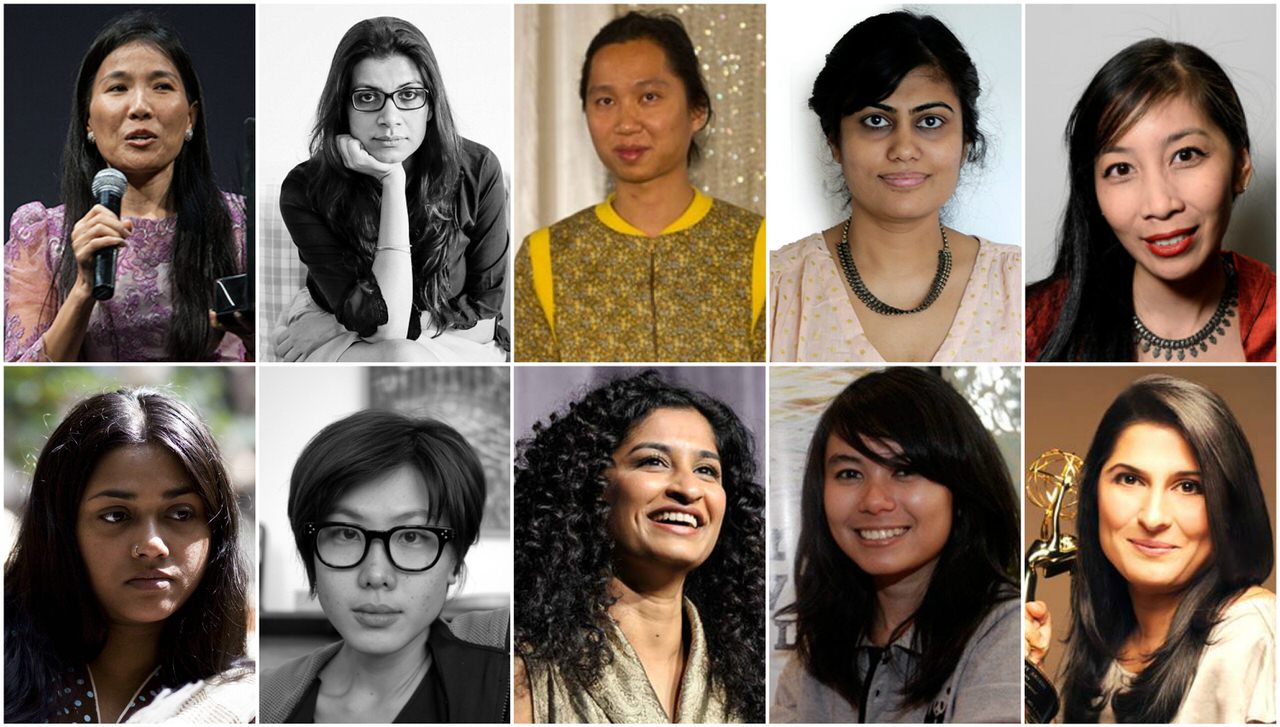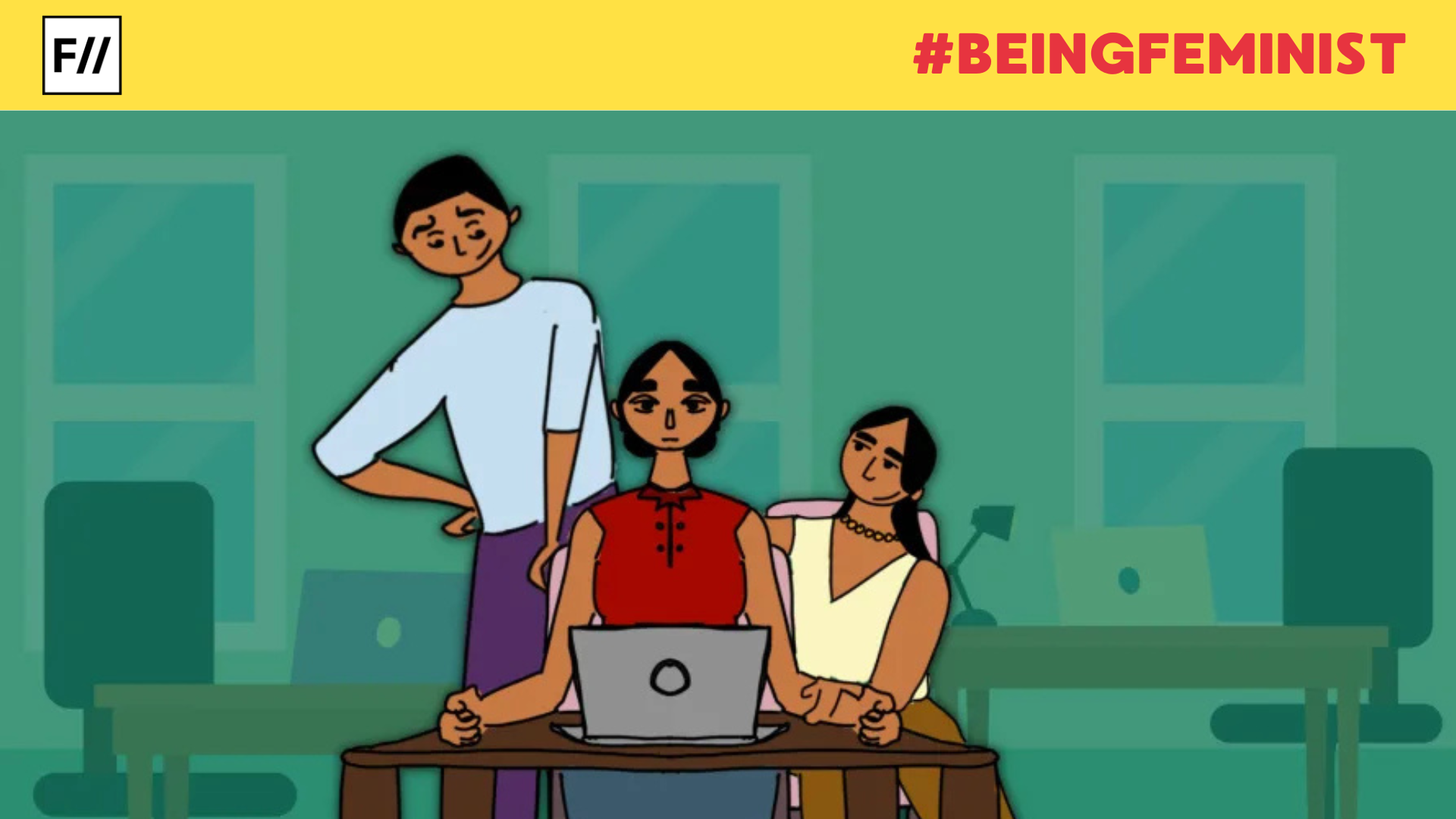Posted by Sil Smit
With every international film festival held, the question gets more pressing. Where are the female directors? Numerous studies on the representation of women in film keep showing the same depressing results, despite well-meant initiatives by festivals and funds. But as bleak as the prospects may be, there are obviously many wonderful and gifted female filmmakers out there in India and South Asia.
Please read on to find who are the most interesting and promising women in South Asian cinema today. These are filmmakers that differ widely from one another; some are more or less established, some are not (but deserve to be!), some do documentaries, some do horror. What they have in common though, is that they are all 100% headstrong, original and female.
Please make sure to read out this article about the 13 most promising female directors in world cinema too!
1. Alankrita Shrivastava (India)
Most notable work: Lipstick Under My Burkha (2017)
Now anyone who hasn’t been living under a rock couldn’t have missed the news about Alankrita Shrivastava’s film Lipstick Under My Burkha being banned by the Indian Board of Film Certification. The film, described by Shrivastava as ‘a story of four feisty women in small-town India who try to chase their little dreams and desires through secret acts of rebellion’, is an important and honest portrayal of female desire that deserves to be seen!
2. Rubaiyat Hossain (Bangladesh)
Most notable work: Meherjaan (2011)
In 2011, Bangladeshi filmmaker Rubaiyat Hossain quickly rose to fame with her debut feature Meherjaan, a feminist love story set against the backdrop of the Bangladesh Independence War of 1971. Meherjaan got banned from many theatres, but that thankfully didn’t stop Hossain. In 2015 she returned with Under Construction, a passionate tale about a Muslim woman in modern day Bangladesh fighting for her (sexual) freedom.
3. Sharmeen Obaid-Chinoi (Pakistan)
Most notable work: A Girl in the River (2015)
Activist/journalist/director Sharmeen Obaid-Chinoi is without a doubt one of Pakistan’s most versatile and socially engaged filmmakers. After being the first Pakistani to win an Academy Award in 2012, she won her second in 2016 for A Girl in the River, a poignant and utterly necessary short documentary about honor killings.
4. Khushboo Ranka (India)
Most notable work: An Insignificant Man (2016)
Together with co-director Vinay Shukla, Indian filmmaker Khushboo Ranka created one of the most baffling documentary films that was shown at the IDFA Film Festival in Amsterdam last year. An Insignificant Man chronicles the jawdropping rise of Indian political movement Aam Admi Party (AAP). If anything, Ranka and Shukla showed that documentary filmmaking can be as thrilling and riveting a fiction cinema. An Insignificant Man is total must-see!
5. Mattie Do (Laos)
Most notable work: Dearest Sister (2016)
American-born Mattie Do returned to her country of origin in 2010, only to become the first Lao female director ever with her 2012 debut Chanthaly. In 2016 she returned with a critically acclaimed second feature, which secured her reputation as one of Asia’s most original voices in horror cinema. Dearest Sister is a highly original mystery drama evolving around a young woman taking care of her cousin, who miraculously turned blind, but is now gifted with the ability to communicate with the death.
6. Kulikar Sotho (Cambodia)
Most notable work: The Last Reel (2014)
Before the Khmer Rouge seized power, Cambodia used to be renowned for its vibrant film culture. In ‘The Last Reel’, first-time director Kulikar Sotho (the first woman to direct a film in Cambodia since 1970!) revisits these days. This tale of a woman digging in Cambodia’s gruesome history by trying to complete a lost film from the 1970’s, is a beautiful ode to the power of cinema and a poignant account of a young woman’s search for recognition.
7. Gauri Shinde (India)
Most notable work: English Vinglish (2012)
Without a doubt the most mainstream name on this list, Hindi director Gauri Shindi gained universal acclaim for her 2012 feel-good comedy English Vinglish. While the film didn’t really distinguish itself stylistically, the story of an insecure Indian house wife traveling to New York to master the English language was simply irresistable.
8. Chui Mui Tan (Malaysia)
Most notable work: Year Without a Summer (2010)
Back in 2010, Malay director Chui Mui Tan surprised the international festival circuit with Year Without a Summer, a beautiful, poetic meditation on life in a small fishing community in Malaysia. Ever since, things became quiet around her, but 2017 marks the return of this distinct magic realist helmer: All About Yuyu, a supernatural coming-of-age flick, should be released soon!
9. Anucha Boonyawatana (Thailand)
Most notable work: The Blue Hour (2015)
As famous countrymen like Apichatpong Weerasethakul have showed previously, Thai films are often hard to pigeonhole. ‘The Blue Hour’, Anucha Boonyawatana’s (1981) debut feature film, is a mesmerizing drama about a bullied gay teenager falling in love with a boy his age at a magical swimming pool. Boonyawatana switches effortlessly between magic realism and engrossing bildungs drama.
10. Kamila Andini (Indonesia)
Most notable work: The Mirror Never Lies (2011)
It is always the question whether being the child of someone famous is a burden or a blessing. When Kamili Andini (1986) released her debut feature The Mirror Never Lies, critics were prone to compare the film to the work of her father, which is Garin Nugroho, one of Indonesia’s most prolific directors. The beautifully shot coming-of-age/environmentalist drama about a young girl struggling with the death of her father stood entirely on its own though.
Sil Smit is the film editor at The Vore.
About the author(s)
Guest Writers are writers who occasionally write on FII.




Hey Anucha is male!